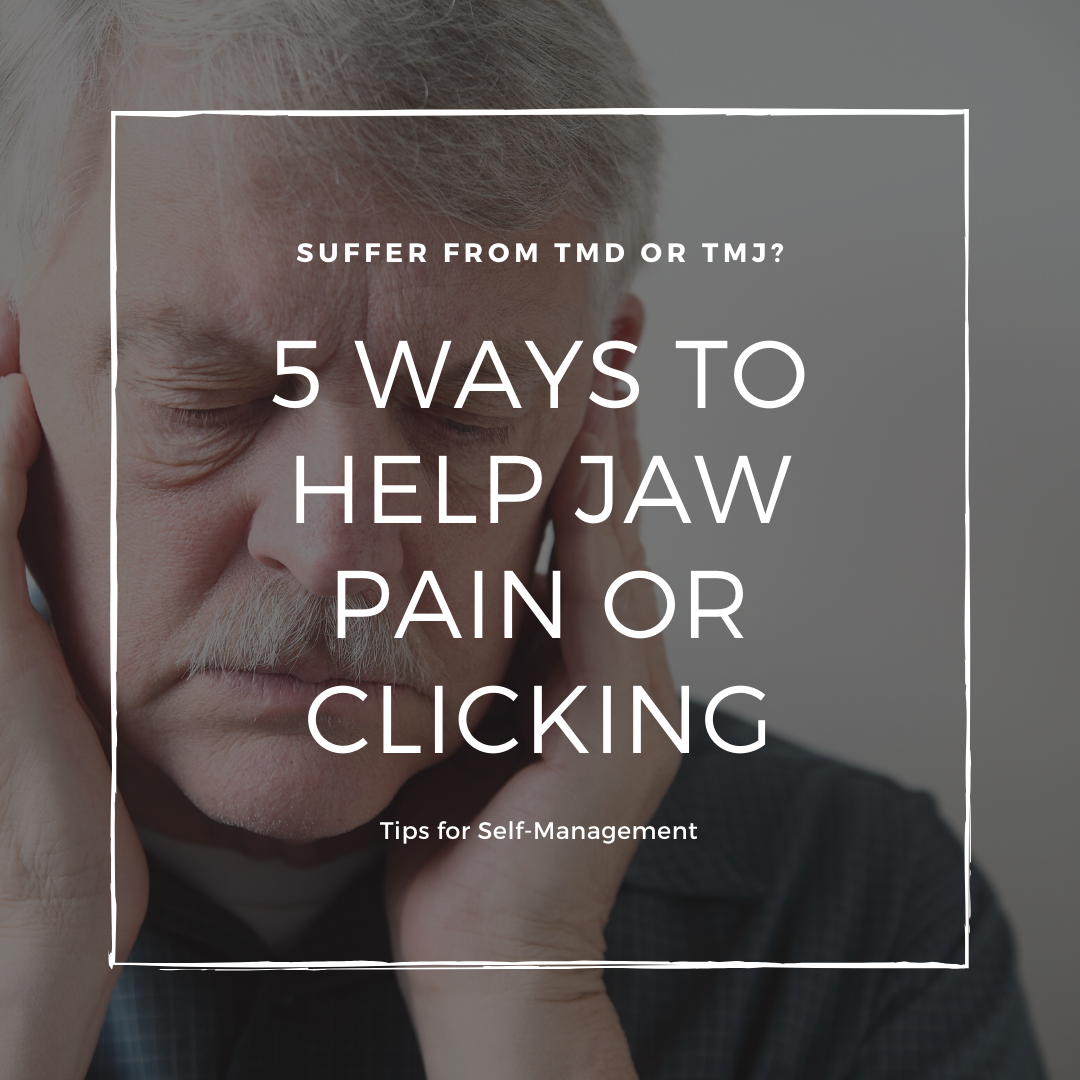Jaw Pain, facial pain, headaches, jaw clicking, jaw locking, ringing in the ears, tooth pain, neck or shoulder pain, facial tingling or teeth grinding.
The Jaw (TMJ)
The temporomandibular joint (TMJ) is the joint where the jaw bone meets the skull. It can be felt just in front of your ears when opening your mouth. The TMJ contains a thin cartilage disc to help protect the bone surfaces.
Temporomandibular joint dysfunction (TMD) happens if there is a change in the normal function of the bones, ligaments, muscles, disc, or nerve components of the jaw.
Symptoms of TMD
Symptoms of TMD are facial pain, headaches, jaw clicking, jaw locking, ringing in the ears, tooth pain, neck or shoulder pain, facial tingling or teeth grinding.
What Causes TMD?
There are many causes of TMD including arthritis in the joint, whiplash, sports injuries, stress, trauma to the head, poor posture, and habits such as chewing gum or nail biting. Any of these can stress or damage the structures within the TMJ causing pain, and if the disc is damaged this can lead to clicking or locking of the jaw.
We get a lot of dentist referrals of TMD at The Physiotherapy Place as often the dentist is the first person someone with jaw pain will contact. As the problem is coming from the tissues in the joint and the related nerves, it is physio that is required to solve the problem.
Tips for Self-Management
1) If the muscles on your jaw or temples are sore, gently massage them with your fingers to decrease muscular tension.
2) Apply heat (hot water bottle) to tight and achey muscles around your jaw to reduce tension. If the TMJ is feeling hot and inflamed, use an ice pack for 10 minutes to reduce pain.
3) Avoid over-opening, chewing gum, biting nails, clenching jaw and grinding teeth. Hard food like carrots and apples should be cut into smaller pieces. Avoid smaller hard foods like nuts, toffee and boiled sweets.
4) Proper positioning of jaw: keep your teeth slightly apart, lips together, tongue on the roof of your mouth, and breathe through your nose. Try to maintain this position as much as possible at rest.
5) Posture: keep chin tucked slightly towards your neck, with head and shoulders back to decrease stress on the upper neck and jaw joints.
If the problem persists, a tailored treatment from a physiotherapist would be the next step.
We have TMJ specialists that can help you understand and manage your TMD with hands-on treatment, education and exercise programs designed for your specific needs. A dentist may also recommend a night splint to be worn to prevent excessive grinding of the teeth at night.

